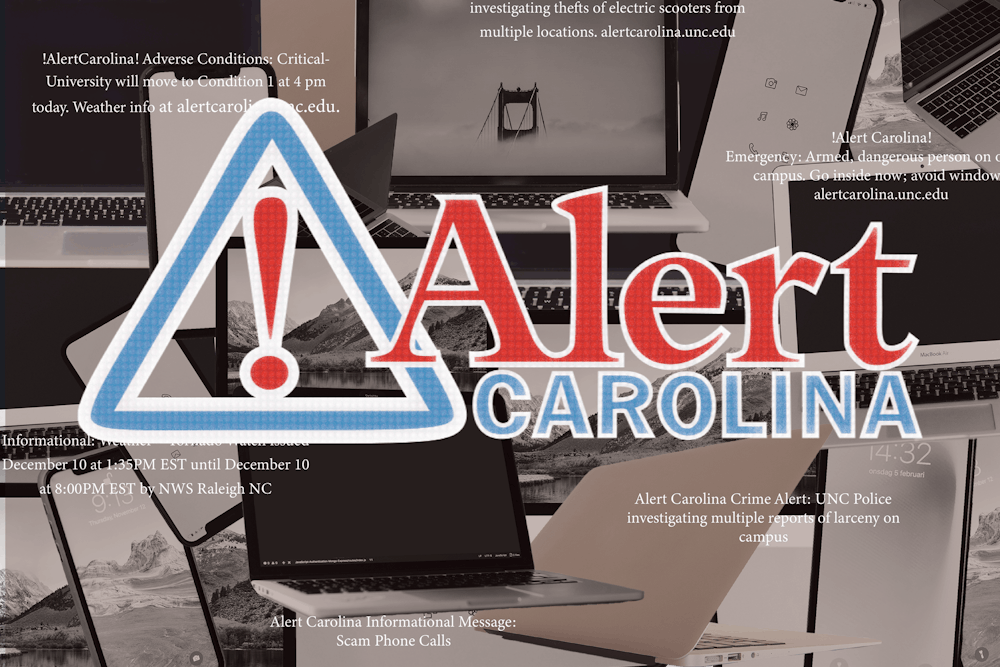Eight months have passed since the Aug. 28 on-campus shooting sparked safety concerns, and with no official changes made yet to UNC's Alert Carolina system, some UNC community members still hope to see updates.
The University is currently in the final stages of conducting a review of Alert Carolina and the Aug. 28 shooting, which is needed to make decisions about any necessary changes on campus including opportunities to enhance Alert Carolina, according to a statement from UNC Media Relations.
The system releases four types of notifications: emergency warning, crime alert, adverse conditions and informational. Media Relations said Alert Carolina messages are sent to all UNC emails; texted to phone numbers registered by students, faculty and staff; and notified through the publicly-accessible Carolina Ready Safety app.
Andrew Gary, a UNC senior and the 2023-24 chair of the Student Safety and Security Committee, said he has met with administrators to discuss Alert Carolina’s crisis messaging throughout the academic year.
Gary said he was in Lenoir Dining Hall during the Aug. 28 lockdown, and students often knew more about the incident than the dining hall's employees. He said he later learned through members of student government that this was partially due to English not being some of the employees’ primary language.
“I think there’s some pretty glaring issues with Alert Carolina, the first one being they only message in one language,” he said.
At the Sept. 8 Faculty Council meeting, council member Hélène de Fays voiced her concern about the lack of language accessibility during the lockdown.
“Being a Spanish professor, I found it a little bit disconcerting that so many people just did not have the right information,” de Fayes said.
She said, while not a personal issue, the lack of language options is a concern for the broader Spanish-speaking community on campus.




